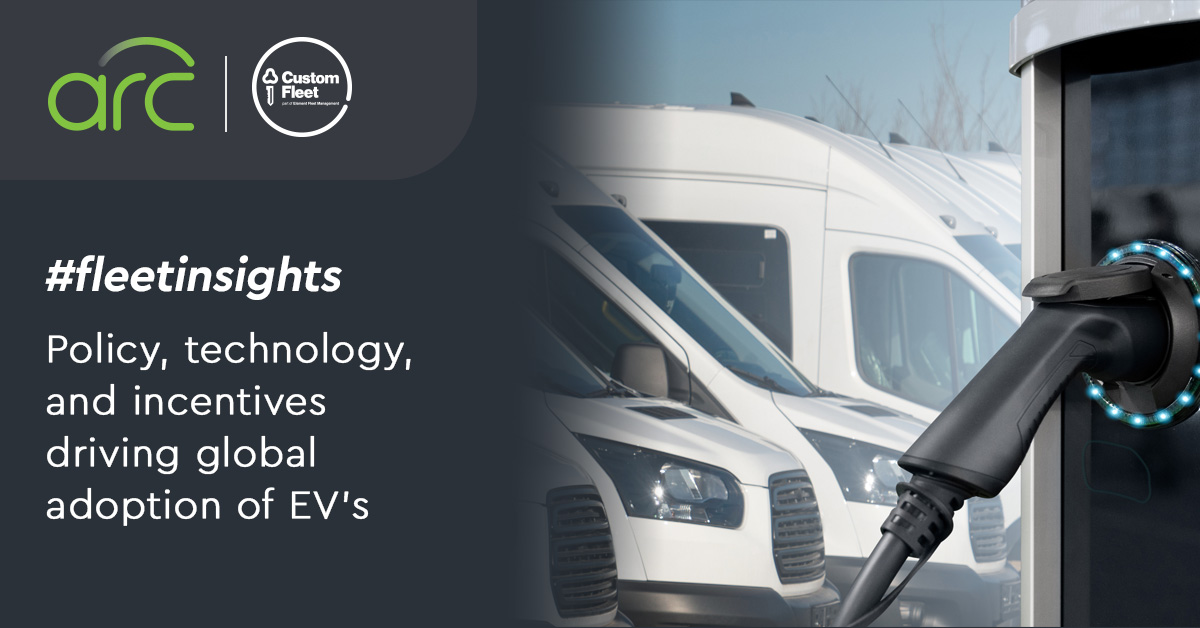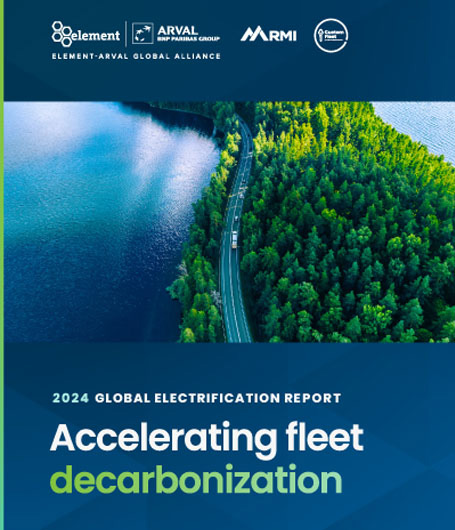26 November 2024
Policy, technology, and incentives driving global adoption of EV’s
Insights from our Accelerating Fleet Decarbonisation report

The global electric vehicle (EV) market is rapidly expanding, driven by corporate sustainability commitments, technological advancements, improved vehicle supply, tax incentives, and regulatory initiatives.
With both individuals and organisations increasingly adopting EVs, the transition is no longer a trend but a key strategy for reducing carbon emissions and meeting future sustainability goals.
EVs are quickly closing the gap
In terms of performance and cost, EVs are catching up to traditional internal combustion engine (ICE) vehicles.
By 2025, a new light-duty EV is expected to be 5% to 10% cheaper over its lifetime compared to a similar ICE vehicle, thanks to lower fuel and maintenance expenses and advances in battery technology.
Over the past decade, battery energy density has doubled, and costs have fallen by 80%, making EVs more affordable and practical for both personal and commercial use.
Fleet electrification is gaining momentum
According to the 2024 Arval Mobility Observatory Fleet and Mobility Barometer, 70% of companies surveyed have already introduced or plan to introduce at least one alternative fuel technology into their fleet by 2027.
Governments are also investing in charging infrastructure to alleviate concerns about charger availability.
For instance, New Zealand aims to establish charging hubs every 100 miles along highways by 2028.
Incentives to increase EV uptake
To further accelerate EV adoption, substantial incentives are being offered in many countries.
As of 2024:
- Australia’s Fringe Benefits Tax exemption makes EVs more affordable for companies
- Canada offers a CDN$5,000 rebate
- The U.S. provides a US$7,500 tax credit
- Mexico exempts EVs from a 15% import tax
- Norway’s VAT exemption for EVs has propelled it to one of the highest adoption rates globally
As the EV market continues to grow, the combination of incentives, technological advancements, and policy support promises to reduce emissions and deliver long-term cost savings for both consumers and businesses.
Download the report for more insights
The 2024 Accelerating Fleet Decarbonisation report, produced by the Element-Arval Global Alliance, in collaboration with RMI offers global insights into fleet electrification.
You can also download the AU/NZ regional snapshot for key local insights (1MB, PDF)

Ready to electrify your fleet?
Contact us today to discuss a strategic approach to transitioning your fleet towards a sustainable future.

